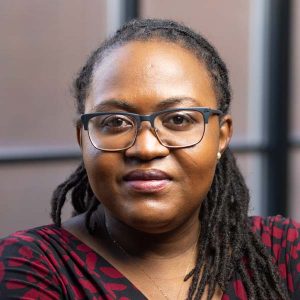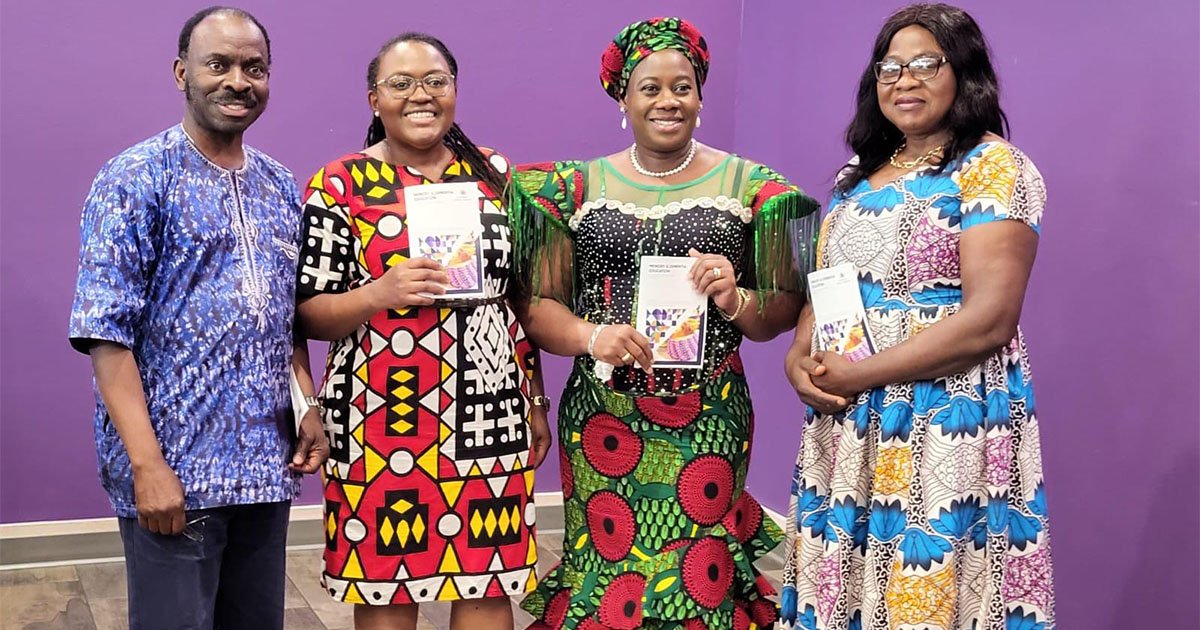Like so much of her work, University of Minnesota School of Public Health (SPH) Assistant Professor Manka Nkimbeng’s latest project started in the community. In a series of conversations about dementia and dementia care with people in the African immigrant community around the Twin Cities, Nkimbeng said people frequently mentioned the need for dementia education — for people who have the disease and those who take care of them, as well as other members of the community.
Nkimbeng said that many people in the African immigrant community had not heard about dementia before coming to the United States.
“Many people in the community did not have a clear idea of what dementia is and saw it as a stigma,” Nkimbeng says. “And because mental health or cognitive issues are not openly discussed or well understood, some members of the community viewed dementia from a spiritual perspective — as a curse, as witchcraft, or as something that Allah or God allowed to happen. There was a big need for dementia education tailored to the specific needs of the African immigrant community.”

Based on those conversations, Nkimbeng and a team of researchers and community partners developed culturally tailored information and recommendations to increase awareness and understanding of dementia. As part of the Immigrant Memory Collaborative — a collaboration between the African Career, Education & Resources, Inc. (ACER) and SPH researchers — the team produced “African Made: Memory and Dementia Education by and for the African Immigrant Community,” a book that comprehensively describes dementia and includes specific recommendations for caring for people with the disease.
In addition to general information about dementia, the book also aims to dispel some common false beliefs, including the belief that it only affects the elderly, that it is caused by bewitching, and that it is a normal part of the aging process.
Nkimbeng said the collaborative was focused on tailoring the book to the needs of the African immigrant community. “We did a lot of work to adapt it to the cultural practices and values that would make sense to people in the community,” she said. “Even the pictures in the book are of older African immigrants! We wanted people to be able to see themselves and understand that dementia is a common health challenge.”
Wynfred Russell, the Founder of ACER, Inc. and former Director of Health Equity, said the book is also meant to educate family members and caregivers of dementia patients.
“Nothing in the world prepares caregivers for the life-changing moment when a family member or loved one gets diagnosed with dementia, but research shows that patients and their families can live fulfilling lives after a dementia diagnosis,” Russell said. “Sadly, in the African immigrant community, families exhaust themselves — physically and financially — caring for a loved one with memory loss. This book provides coherent information, helpful direction, and comfort to families and friends of African immigrants coping with memory loss.”
The team is currently focused on distributing the book through community events and other local channels. “Our goal is to disseminate the book to the community in a way that is led by the community, to reinforce that this has been a community-driven project throughout,” Nkimbeng said.
The Immigrant Memory Collaborative is a community/UMN partnership between ACER and researchers at the UMN School of Public Health. So far, the collaborative has undertaken two projects: the African Immigrant Memory Loss Project and the African Immigrant Dementia Education Project.
Dr. Nkimbeng and the School of Public Health would like to acknowledge the following for their important contributions to the project: Dr. Posa Aswani; Restoration for All Inc.; Progressive Individuals Resources Inc.; Masjid Al-Ansar; and many community organizations that opened their doors to us
To learn more about any of these projects, request a copy of the book, or inquire about dementia education presentations, contact ACER.

